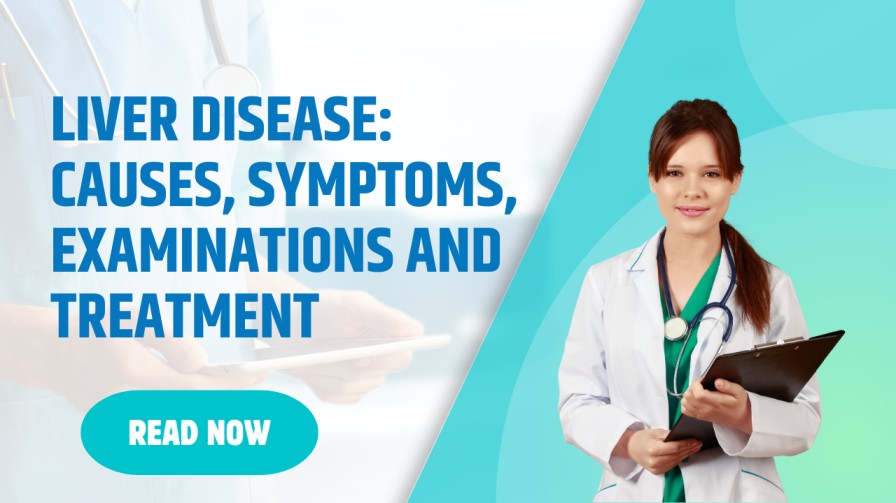Understanding The Liver
Your liver is a vital organ that performs many essential functions in your body. It’s like a hardworking factory, processing nutrients from the food you eat, filtering toxins from your blood, and producing substances essential for your body’s proper functioning.
Functions of the liver
Here are some of the key functions of the liver:
- Digestion: The liver produces bile, a fluid that helps digest fats.
- Detoxification: The liver filters harmful substances from your blood, such as alcohol and drugs.
- Storage: The liver stores essential nutrients like vitamins and minerals.
- Protein production: The liver produces proteins that help blood clot and transport nutrients.
- Immune function: The liver plays a role in fighting infections.
Types of Liver Disease
Several types of liver diseases can affect people of all ages. Here are some common types:
Fatty Liver Disease
- Alcoholic Fatty Liver Disease: Excessive alcohol consumption can lead to fat buildup in the liver.
- Non-alcoholic Fatty Liver Disease (NAFLD): This condition occurs when too much fat accumulates in the liver, often linked to obesity, type 2 diabetes, and high cholesterol.
Viral Hepatitis
- Hepatitis A: A viral infection that usually causes mild illness.
- Hepatitis B: A serious liver infection that can become chronic.
- Hepatitis C: A viral infection that can lead to chronic liver disease, liver failure, and liver cancer.
Autoimmune Hepatitis
A condition where your immune system attacks your liver cells.
Liver Cancer
Cancer that develops in the liver cells.
Other Liver Diseases
- Hemochromatosis: A genetic disorder that causes too much iron to build up in the body.
- Wilson’s disease: A rare genetic disorder that causes copper to build up in the liver, brain, and other organs.
- Primary biliary cholangitis: A chronic liver disease that damages the bile ducts.
Symptoms of Liver Disease
Early-stage liver disease often doesn’t cause noticeable symptoms. However, as the disease progresses, you may experience the following:
Early Symptoms
- Fatigue
- Loss of appetite
- Mild abdominal pain
- Nausea and vomiting
- Weight loss
Late-Stage Symptoms
- Jaundice (yellowing of the skin and eyes)
- Dark urine
- Light-colored stools
- Severe abdominal pain
- Swelling in the legs and abdomen
- Confusion and disorientation
Diagnostic Tests for Liver Disease
To diagnose liver disease, your doctor may order the following tests:
- Blood Tests: To check liver function and levels of liver enzymes.
- Imaging Tests: Such as ultrasound, CT scan, or MRI, to visualize the liver and detect any abnormalities.
- Liver Biopsy: A small piece of liver tissue is removed and examined under a microscope.
Treatment Options for Liver Disease
The treatment for liver disease depends on the underlying cause and the severity of the condition. Here are some common treatment options:
- Lifestyle Modifications:
- Diet: A healthy diet can help improve liver function.
- Exercise: Regular physical activity can help reduce liver fat and improve overall health.
- Weight Loss: Losing weight can help reduce liver fat and improve liver function.
- Alcohol and Drug Avoidance: Avoiding alcohol and illicit drugs can protect your liver.
- Medications: Medications can help manage liver inflammation and prevent complications.
- Medical Procedures: Procedures like balloon angioplasty and stent placement can help improve blood flow to the liver.
- Liver Transplant: In severe cases of liver failure, a liver transplant may be necessary.
Prevention of Liver Disease
While there’s no guaranteed way to prevent all liver diseases, you can take steps to reduce your risk:
- Healthy Lifestyle: Maintain a healthy weight, eat a balanced diet, and exercise regularly.
- Vaccination: Get vaccinated against hepatitis A and B.
- Regular Check-ups: Schedule regular check-ups with your doctor, especially if you have risk factors for liver disease.
Conclusion
Liver disease can be a serious condition, but early detection and treatment can improve your outlook. By making healthy lifestyle choices and seeking regular medical care, you can protect your liver and maintain optimal health.
FAQs
- Can liver damage be reversed? In some cases, early-stage liver damage can be reversed with lifestyle changes and medical treatment. However, advanced liver disease is often irreversible.
- What are the signs of liver failure? Signs of liver failure include jaundice, severe fatigue, confusion, and swelling in the abdomen.
- Can a healthy diet improve liver function? Yes, a healthy diet rich in fruits, vegetables, and whole grains can help improve liver function.
- Is liver disease hereditary? Some types of liver disease, such as hemochromatosis and Wilson’s disease, are hereditary. However, many cases of liver disease are caused by lifestyle factors.
- How often should I get a liver function test? The frequency of liver function tests depends on your risk factors and overall health. Your doctor can recommend the best testing schedule for you.

